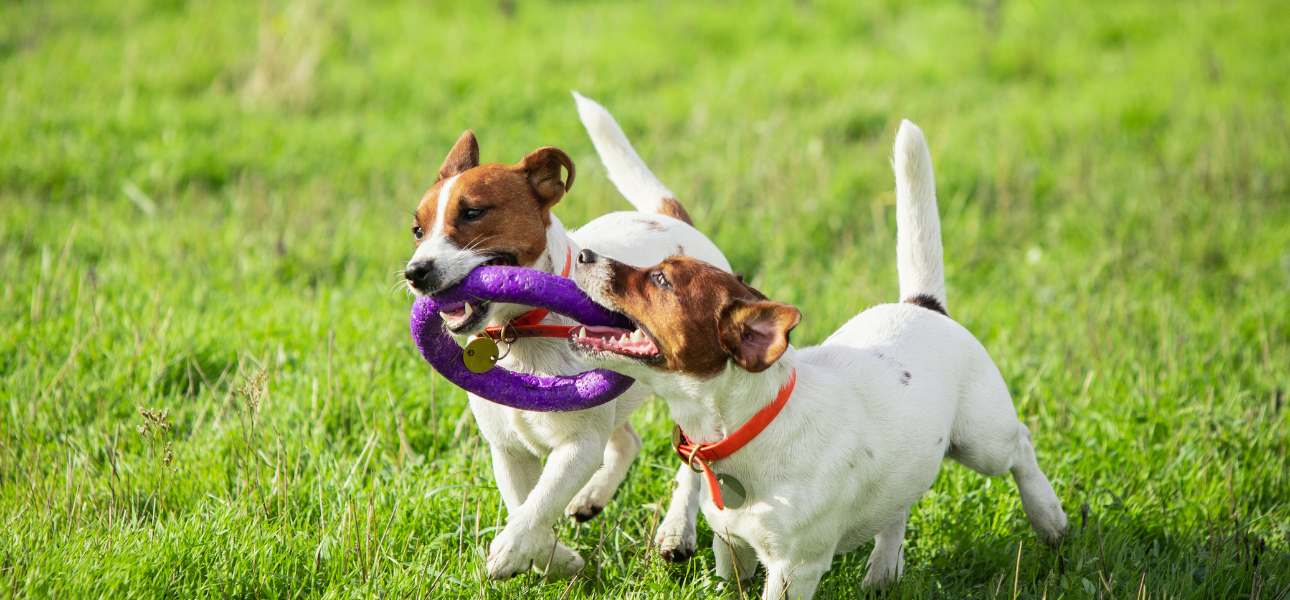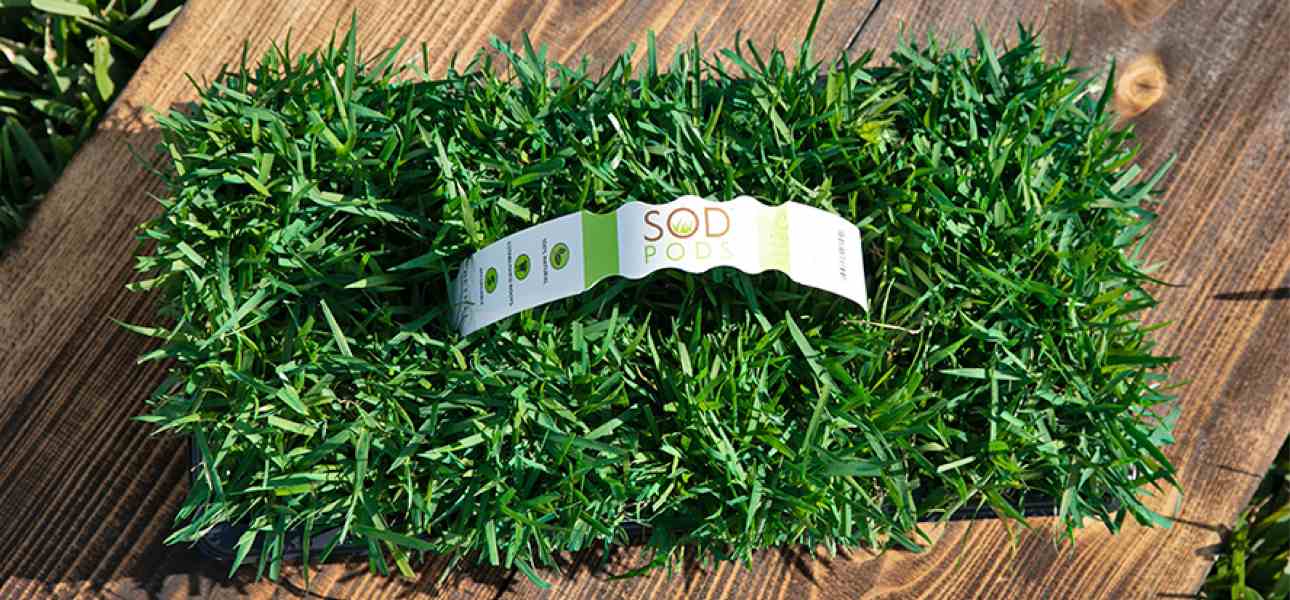The Best Grass for Dogs — Ranked!
Published on

As a dog owner, your idea of a slow weekend is probably spent watching your dog romp around the yard, enjoying the pure pleasure of seeing them play on the grass.
However, all this playtime can take a toll on your lawn, resulting in unsightly brown patches of dead grass. While this may seem like an unavoidable part of having a dog, there are ways to keep your lawn lush and green despite their ruff activities.
Proper lawn maintenance is essential for preserving the appearance of your lawn, but half the battle is selecting the right type of grass, ensuring it can withstand the wear and tear of dog ownership. As a trusted provider of grass plugs for sale, we're ranking the best types of grass for dogs to help you keep a healthy lawn.
3 Qualities That Make the Best Grass for Dogs
Dog play can lead to heavy foot traffic on your lawn, which over time can result in soil compaction. As dogs run, jump, and play, they can compress the soil, particularly in areas where they often play. Compacted soil restricts root growth, which consequently affects the plant's ability to absorb water and nutrients, leading to thinning grass and a less healthy lawn, overall.
Even when you don't have an active dog, there are other ways they can wreak havoc on your lawn. Dog urine, for example, has high nitrogen content that can burn your grass, leaving behind patches of sad yellow or brown color on your lawn. Similarly, when dog poop sits long enough to break down into the soil, it releases nitrogen that can damage your grass.
All these considerations emphasize the importance of selecting a variety that can withstand the harsh treatment from dogs. Below are the key qualities that make some grass types more resistant to wear and tear than others.
Deep Roots: Grass with deep, well-anchored roots is more resistant to wear and tear and can withstand constant traffic and digging. A lawn with a deep root system is also generally more resilient against other environmental stresses like drought because it can access water and nutrients from deeper into the soil.
Quick Recovery: Additionally, the deeper root system allows the grass to recover more quickly from damage, such as dog urine spots or trampling. The roots can draw up nutrients and moisture to facilitate new growth.
Rapid Growth: Grass types with a rapid spread rate allow your lawn to quickly bounce back from damage. It ensures that the grass can cover dead patches faster and maintain a lush appearance despite heavy use.

What is the Most Dog-Friendly Grass?
Although you may find many other grass types that are preferable for dog owners, one of the crucial factors to consider when deciding on a variety is your local climate. Grass varieties are generally classified into two categories: warm-season or cool-season grass.
Cool-season grasses, such as Kentucky bluegrass and perennial ryegrass, thrive in cooler climates and experience peak growth during the spring and fall. Conversely, warm-season grasses prefer warmer climates, growing actively from late spring through early fall. It explains why grass varieties like Bermuda, Zoysia, St. Augustine, and Centipede are prevalent in regions such as Florida, where winters are relatively mild, characterized by the absence of snowfall and below-freezing temperatures.
1. Centipede Grass
Centipede grass is an excellent option for lawns that can withstand paw traffic. While it is known for its low-maintenance nature, it does require specific climate and soil conditions to thrive. For example, it prefers more acidic soil than most grasses and will not survive in alkaline soil. This grass variety also thrives in the warm, humid climate of Florida but requires frequent watering to survive.
The high watering requirements of centipede grass help dilute your dog's urine, minimizing the risk of damage to your lawn. Another distinct trait is its slow growth rate, which is the slowest among warm-season grasses.
2. Zoysia Grass
Zoysia grass possesses many great qualities sought for residential lawns. Its thin, fine-textured blades form a dense light to medium green cover, adding to its aesthetic appeal. This grass variety is incredibly durable and can withstand wear and tear, including dog traffic.
While it prefers full sun, this warm-season grass can tolerate light shade. It goes dormant during the cold season, which can affect its durability during that period. One of the unique features of Zoysia grass is its relatively slow growth rate, taking two to four years to fully establish. While this may mean it takes longer to recover from dog damage, it also means less frequent mowing and maintenance, making it a low-maintenance option for many homeowners. Ultimately, Zoysia grass rewards patience with a lush, durable lawn that you and your furry friend will appreciate.
3. Bermuda Grass
Bermuda grass checks all the criteria for a dog-friendly lawn: deep roots, durability, and a quick recovery rate. This is why it's widely used on golf courses, sports fields, and other high-traffic lawns.
With its deep root system, Bermuda grass is exceptionally hardy and quick to heal. It thrives in full sun, exhibits excellent drought tolerance, and requires minimal watering. Although common Bermuda grass has poor cold tolerance, improved varieties such as BIMINI® Bermudagrass can withstand colder temperatures, maintaining their dark green color when other varieties would typically go dormant.
Widely available as Bermuda grass plugs, they make a preferable option over Centipede and Zoysia grass when you need a lawn that establishes quickly.

Takeaway
Overall, what makes certain grass types dog-friendly are their deep roots — the deeper and stronger the roots, the healthier and more durable your lawn will be. When selecting a grass type for your lawn, consider your local climate, sun and shade conditions, soil type, and the level of maintenance you can commit to. Some grasses require more maintenance or more sunlight exposure, or are more drought-resistant than others, allowing them to thrive with less frequent watering.
Got more dog-friendly grass questions? Try SodPods® is here to help! Our lawn care specialists are trained to give you recommendations tailored to your specific requirements. Leave us a message today!


